Hammers & Nails 2026
August 5 – 14, 2026
Eilam Gross
Weizmann Institute of Science
Kyle Cranmer
NYU & University of Wisconsin-Madison
Tobias Golling
Université de Genève
Maurizio Pierini
CERN
Tilman Plehn
University of Heidelberg

Perspectives on Non-Equilibrium Processers
Postponed until further notice.
The workshop aims at exploring several areas of the broad field of nonequilibrium statistical mechanics, where intimate connections are presently emerging. The main themes that will be covered include active matter, stochastic thermodynamics, large deviations, extreme value statistics, stochastic resetting and anomalous transport, particularly in low dimensional systems. Bringing together scientists and students active in theoretical and experimental research in these areas would lead to strengthening the interaction among the different communities and facilitate exploring new avenues of research. The progress made recently in these subfields of the broad discipline of nonequilibrium statistical physics makes the workshop timely and highly promising.
- Yariv Kafri, Technion
- David Mukamel, Weizmann Institute
- Satya Majumdar, Universite Paris Sud
- Oren Raz, Weizmann Institute
- Gianluca Teza, Weizmann Institute
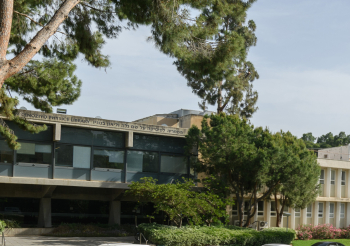
Workshops
Correlated Days 2026
February 8 – 10, 2026
This three-day meeting will bring together members of the Israeli physics community working on strongly correlated electronic systems, aiming to strengthen community ties and facilitate cross institute collaborations. The meeting will focus on many-body systems where traditional theories like Fermi liquid, BCS, or Ginzburg-Landau break down, including out-of-equilibrium systems, topological superconductors, magnetic materials, strongly disordered systems, fractional quantum Hall states, and flat-band systems.
Jonathan Ruhman, Bar-Ilan University
Yuval Ronen, Weizmann Institute
Amit Kanigel, Technion
Snir Gazit, The Hebrew University
Dganit Meidan, Ben Gurion University
Tobias Holder, Tel Aviv University

Stochasticity in Microbial Physiology
January 4 – 10, 2026
Over the last decades, the study of microbial physiology has been invigorated by technological advances and improved mathematical and biophysical models. In particular, single-cell and single-molecule measurements have allowed understanding at a finer resolution, often accompanied by conceptual breakthroughs and novel stochastic models.
This interdisciplinary workshop will bring together experimentalists and theorists, physicists, biologists, mathematicians and engineers, working on a diverse set of problems involving stochasticity in the context of microbial growth, growth-arrest and gene expression.
Ariel Amir,
Weizmann Institute of Science
Nathalie Balaban,
The Hebrew University of Jerusalem
Naama Barkai,
Weizmann Institute of Science

Exotic Quantum States – from Electronic Systems to Quantum Simulations
July 7 – 10, 2025
In the last few years, we have seen the realization of several novel states of matter that transformed from theoretical speculations to experimental observations. These include the Fractional Chern Insulators, exhibiting Fractional Quantum Hall effect with no magnetic field, unconventional superconductors and insulators, topological states realized on small-scale quantum computers, and more.
In this conference, we will convene leading scholars of these states, both theorists and experimentalists, to discuss these developments, learn from one another, and form future collaborations.
Ady Stern, The Weizmann Institute of Science
Andrei Bernevig, Princeton University
Paco Guinea, IMDEA Nanociencia
Shahal Ilani, The Weizmann Institute of Science
Raquel Queiro, Columbia University

LULBI - Light & ultralight BSM interactions
May 4 – 15, 2025
LULBI (pronounced lullaby) is a workshop and an embedded advanced school at the Weizmann Institute, bringing together theorists and experimentalists.
The event will cover a broad range of light beyond-the-Standard-Model scenarios, including precision physics and light dark matter. Participants will explore new ideas, experimental techniques and their applications, and theoretical advances. We will have dedicated times for informal interactions to encourage collaboration and discussion.
Ranny Budnik
The Weizmann Institute of Science
Gilad Perez
The Weizmann Institute of Science
Maxim Pospelov
University of Minnesota
Dmitry Budker
Berkeley, Maintz

Galaxy and Black Hole Evolution through Cosmic Time
Postponed until further notice.
This symposium will bring together members of the Israeli and German astronomy communities, aiming to celebrate and strengthen the close scientific relationships and bonds between these communities. The meeting will focus on the first galaxies, black holes, dust, dark matter, galactic archeology, transients, and advanced observational techniques.
Eli Waxman, Weizmann Institute of Science
Amiel Sternberg, Tel Aviv university
Sahar Shahaf, Weizmann Institute of Science
Na'ama Hallakoun, Weizmann Institute of Science

Correlated days 2024
September 3 – 5, 2024
This three-day meeting will bring together members of the Israeli physics community working on strongly correlated electronic systems, aiming to strengthen community ties and facilitate cross institute collaborations. The meeting will focus on many-body systems where traditional theories like Fermi liquid, BCS, or Ginzburg-Landau break down, including out-of-equilibrium systems, topological superconductors, magnetic materials, strongly disordered systems, fractional quantum Hall states, and flat-band systems.
Organizing committee:
- Anna Keselman, Technion
- Amit Kanigel, Technion
- Jonathan Ruhman, Bar-Ilan University
- Roni Ilan, Tel Aviv University
- Snir Gazit, The Hebrew University

SN 2023ixf, The Decadal Supernova in M101
June 4 – 7, 2024
Discovered by the amateur astronomer Koichi Itakagi in May 2023, SN2023ixf is the closest supernova in the past decade.
Its proximity and the current dedication of the astronomy community to observing transients, allowed for an unprecedented set of multi wavelength and high signal to noise ratio observations.
Since the tragic event of the 7th of October in Israel, and given the current evolution of the war, we decided to move the workshop dedicated to SN2023ixf to ESO in Garching, Germany, from the 4th until the 7th of June 2024.
- Rachel Bruch
- Avishay Gal-Yam
- Luc Dessart

Quantum Chaos and Holography 24
May 20 – 24, 2024
This five-day workshop will facilitate an intensive exchange of ideas between string theorists, condensed matter physicists, mathematical physicists and researchers with other areas of expertise actively working on theory and applications of quantum chaos.
- Micha Berkooz, Weizmann Institute of Science
- Johanna Erdmenger, Julius-Maximilians-University Würzburg
- Moshe Rozali, UBC
- Anatoli Polkovnikov, Boston U.
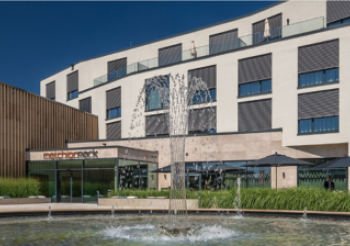
New Frontiers in Quantum Matter
March 24 – 26, 2024
This short meeting will bring together experts from Israel and abroad to discuss topics at the forefront of condensed matter physics, including novel quantum materials, exotic phases of matter, superconductivity, transport beyond the Boltzmann paradigm, and advances in experimental and theoretical techniques.
- Erez Berg
- Andrey Chubukov
- Alex Kamenev

LUXE physics and SFQED
September 4 – 12, 2023
The workshop will focus on the LUXE experiment design, physics as well as on related topics in Strong-Field Quantum Electrodynamics (SF-QED) and Beyond the SM (BSM) opportunities. The workshop will bring together physicists from several disciplines, namely laser physicist, particle experimentalists, SF-QED theorists and BSM phenomenologists. This will serve as a ground for discussions related to the experimental design from the underlying theory governing the interactions (both within the standard model and beyond it), through the laser instrumentation and diagnostics, and on to the detectors and reconstruction.
The LUXE experiment (Eur. Phys. J. Spec. Top. 230, 2445–2560 (2021)) at the Eu.XFEL is designed to test the validity of QED in the extreme field regime with an unprecedented precision. LUXE will collide high-intensity laser pulses with a high-energy and high-charge electron beam from the Eu.XFEL. Two processes arise in such collisions: nonlinear Compton scattering (NCS) and nonlinear Breit-Wheeler pair production (NBW). The rate of these processes is characterized by the Schwinger critical field of ~1.3e18 V/m. The SLAC E144 experiment operated in the 1990s was able to measure these processes in laser RMS fields of up to about a quarter of the Schwinger field strength in the electron’s rest frame. The LUXE experiment aims to reach and go beyond that point. Besides the SF-QED precision measurements, the experiment offers opportunities to search for BSM physics and several such directions have been proposed, e.g. in Phys. Rev. D 106, 115034 (2022). With the recent critical-decision-1 (CD1) approval by the DESY directorate, the experiment expects to install and start taking data in 2026.
The workshop will have two parts: LUXE-only closed session (Sep 4-7) followed by an open session (Sep 7-12), which will also include an overnight excursion to the desert.
Accommodation and catering (except for the days with free evenings) are fully covered for all participants in both sessions. Flights support is provided to invited speakers only (in the open session).
- Victor Malka,
Weizmann Institute of Science - Gilad Perez,
Weizmann Institute of Science - Noam Tal Hod,
Weizmann Institute of Science

Solitons, Collapses and Turbulence
June 12 – 16, 2023
The conference aims to bring together experts in nonlinear physics, nonlinear waves and applied mathematics to address and cross fertilize three main branches of nonlinear science: Solitons, Collapses and Turbulence. Solitons are studied by combining the inverse scattering transform and recent approaches to exact integrable and near integrable models. Strongly nonlinear wave phenomena often result in finite time singularity formation by wave collapse. Both solitons and collapses provide a pathway to turbulence and chaos. A wide range of applications of nonlinear science will be included such as nonlinear optics, plasma physics, Bose-Einstein condensate, hydrodynamics, astrophysics and condensed matter.
Local organizer:
Gregory Falkovich,
Weizmann Institute of Science
Scientific committee:
Pavel Lushnikov (conference chair),
University of New Mexico, USA
Alexander Mikhailov,
university of Leeds, UK
Sergey Turitsyn,
Aston University, UK

A Quantum Many-Body Handshake: Theory and Simulation meet Experiment
December 11 – 22, 2022
Recent breakthroughs in quantum material design, such as the discovery of two-dimensional systems with an unprecedented level of control, along with developments in quantum science technology and new insights into quantum many-body theory, open up new opportunities in the field. The long-promised possibility to perform large-scale quantum simulations (either analogue or digital) is coming into fruition. The aim of the proposed workshop is to bring together a group of leading theorists and experimentalists in quantum condensed matter physics to discuss topics at the interface between theory, simulation and experiments. Among the topics that will be covered are: two-dimensional quantum materials, such as transition metal chalcogenides and multi-layer graphene, as platforms for quantum simulation and realization of exotic phases; simulations using artificial platforms; developments in computational many-body physics and quantum many-body theory; novel quantum phase transitions in and out of equilibrium; and spin liquid phases in quantum materials and artificial systems.
Organizers:
Erez Berg, Weizmann Institute of Science
Snir Gazit, Hebrew University of Jerusalem
Anna Keselman, Technion, Israel Institute of Technology
Cenke Xu, University of California, Santa Barbara

LUXE physics & Strong-field QED
October 24 – November 3, 2022
The workshop will focus on the LUXE experiment (design, physics and opportunities) as well as on related topics in Strong-field QED. The format of the workshop will inherit from the LUXE yearly workshops (2 held so far and one will be held in Apr 2020). Besides the discussions about the experiment design, the discussions will be expanded in any one of the major subjects: underlying QED theory, beyond the standard model opportunities and detector and laser challenges. The format will be a few talks per day.
Noam Tal Hod, Weizmann Institute of Science
Victor Malka, Weizmann Institute of Science
Gilad Perez, Weizmann Institute of Science
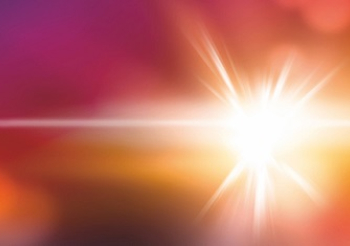
Hammers & Nails 2022
August 2 – 12, 2022
Following the success of the 2017 and 2019 Hammers & Nails workshops, we are happy to announce a followup 2022 workshop.
The purpose of the workshop is to bring together particle physicists and machine learning researchers to discuss the unique challenges posed by high-energy physics data analysis problems. While some of these problems are simply waiting to be matched with well-established techniques (the pairing of hammers and nails), many require or inspire the development of novel methods.
Eilam Gross, Weizmann Institute of Science
Kyle Cranmer, New York University
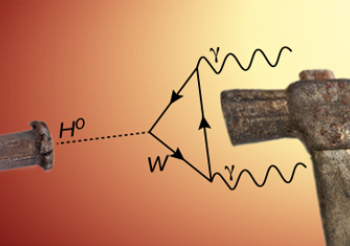
GW-EM Workshop
June 19 – July 1, 2022
The detection of gravitational waves (GWs) and light from a neutron star merger launched a new era in multi-messenger astronomy. Even though much was learned from the event, several open questions remain. This workshop, set to take place a few months after the conclusion of the third advanced GW-detector observing run, aims to discuss the results of that run, plan the observations and modeling required for the era of design-sensitivity operations, and prepare for what promises to be an exciting future in astronomy and physics.
Iair Arcavi, Tel Aviv University
Avishay Gal-Yam, Weizmann Institute of Science
Doron Kushnir, Weizmann Institute of Science
Eran Ofek, Weizmann Institute of Science
Eli Waxman, Weizmann Institute of Science
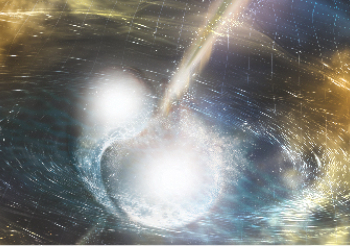
Gauge Theories and Black Holes
December 29, 2019 – January 9, 2020
Quantum mechanics, field theories and gravity are intimately related via the AdS/CFT correspondence (among other things). It is clear, however, that we have not yet fully harnessed the power of any of them. The interface of gauge theories and black holes poses a particular set of puzzles, and in recent years a new set of concepts and tools was developed to study this interface.
These new concepts and tools extend our abilities to compute traditional basic observables in field theories and gravitational systems, such as partition functions and correlation functions (or S-matrix elements in the case of gravity). Some of them, such as entanglement and quantum chaos, break away from these traditional paradigms.
In particular, new methods were developed for computing correlation functions via the bootstrap method, with implications for quantum physics in the bulk via the AdS/CFT correspondence, and significant progress was made in understanding new classes of supersymmetric gauge theories and their dualities (including relations to dualities in CM physics).
Among the new approaches there are methods in field theory which rely on quantum information and quantum computation concepts (with interfaces to CM and Stat. Phys.), new methods in analyzing time dependence in hard quantum systems such as the SYK model, and quantum chaos, which is intimately related to the understanding of black holes (with interfaces to CM and hard statistical physics, via systems with randomness, spin glasses, classical and quantum chaos and others).
The workshop aims to bring together experts on some of these aspects for an interchange of ideas.
The topics of the workshop are general, with some focus on SYK-related physics, on entanglement and on analytic bootstrap methods. In particular there will be some emphasis on the first two topics in the first week, and an emphasis on the 3rd topic in the second week, though the division is not strict.
- Ofer Aharony, Weizmann Institute of Science
- Micha Berkooz, Weizmann Institute of Science
- Simon Ross, Durham University
- Shimon Yankielowicz, TAU
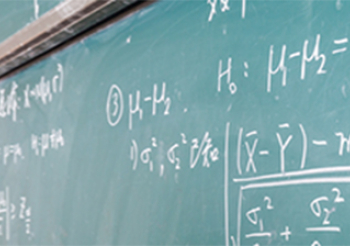
Frontiers of Quantum Matter
December 9 – 19, 2019
The workshop will bring together experts and young researchers in theoretical and experimental quantum condensed matter and cold atoms to discuss novel ideas and emerging directions in the field of topological matter. Among the topics that would be covered: novel topological phases of matter, both in engineered systems and in new materials; flouqet systems in and out of equilibrium, Networks of Majoranas Zero modes; etc…
Netanel Lindner, Technion
Yuval Oreg, Weizmann Institute of Science
Gil Refael, Caltech
Ady Stern, Weizmann Institute of Science
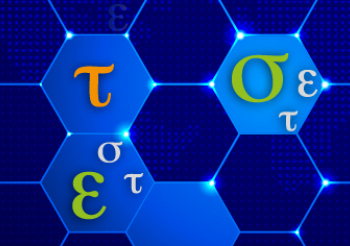
Promoting gender equality in physics: Barriers and opportunities
October 26 – November 1, 2019
The workshop will enable a common learning space to physicists, sociologists and gender experts, and practitioners promoting gender diversity in physics in universities and research institutes around the world. The format will consist of a small number of open-ended presentations per day that develop into free discussions.
Nirit Dudovich, Weizmann Institute of Science
Meytal Eran-Jona, Weizmann Institute of Science
Avishay Gal-Yam,Weizmann Institute of Science
Yossi Nir, Weizmann Institute of Science
Marika Taylor, University of Southampton
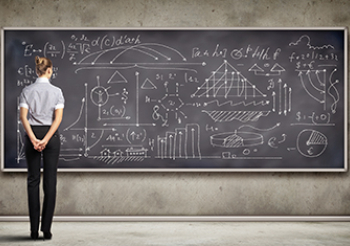
Hammers and Nails 2 - Machine Learning & HEP
July 30 – August 8, 2019
Following the success of the 2017 Hammers & Nails workshop, we are happy to announce a followup 2019 workshop.
The purpose of the workshop is to bring together particle physicists and machine learning researchers to discuss the unique challenges posed by high-energy physics data analysis problems. While some of these problems are simply waiting to be matched with well-established techniques (the pairing of hammers and nails), many require or inspire the development of novel methods.
Eilam Gross
Weizmann Institute of Science
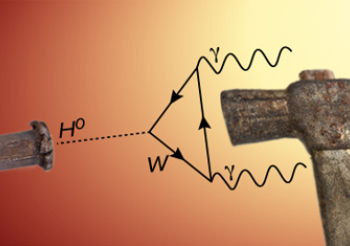
Fluid flows, from graphene to planet atmospheres
December 17, 2018 – January 4, 2019
The workshop is aimed at bringing together leading researchers active in the broad field of theoretical and experimental fluid mechanics, fostering open discussions and exploring new directions of research in this rapidly evolving field. Topics that will be covered include turbulence onset and turbulence-flow interaction, complex fluids, viscous electronics, etc. The goal is to encourage cross-field interaction.
Gregory Falkovich, Weizmann Institute of Science
Leonid Levitov, MIT
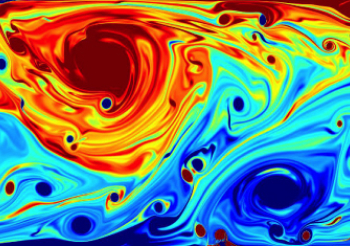
The origin of Fast Radio Bursts
December 3 – 13, 2018
The workshop will focus on the nature of Fast Radio Bursts (FRB), theory and observations.
FRBs are dispersed millisecond-duration pulses observed at the GHz frequencies.
First reported in 2007 by Lorimer et al., FRBs are still poorly understood.
Recent progress in observations start to shed light on the nature of FRBs. It is expected that new observations, as well as new instrumentation, will keep fueling the FRB revolution.
Avishay Gal-yam, Weizmann Institute of Science
Assaf Horesh, Hebrew University of Jerusalem
Vicky Kaspi, McGill University
Eran Ofek, Weizmann Institute of Science
Eli Waxman, Weizmann Institute of Science
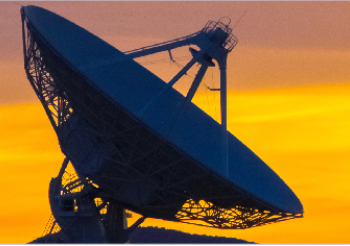
Physicists working on Cancer
July 1 – 12, 2018
During the past decade quite a few theoretical physicists became interested in cancer research. As is the case when physicist “invade” a field, the pursued research goals cover a very wide spectrum of topics and approaches. These include applying physics - based techniques and mathematical methods to physics problems that have possible relevance for cancer biology; modeling various processes that take part in the initiation, progression and metastasis of tumors; effects of chemotherapy and immunotherapy and the response to it; developing methods for analysis of high-throughput data and their application to cancer.
The aim of the workshop is to bring together 20 - 25 senior Physicists who are working on cancer and about 10 students or postdocs, to share their views, sharpen research questions relevant to this community, and to learn from each other as well as from guest biologists. The main topics are:
Tumor initiation and primary tumor growth
Metastasis: Cell Motility, ECM interactions, initiation of new growth
Chemotherapy, targeted therapy and immunotherapy - efficacy versus resistance
Omic studies of high throughput data
We plan to have 2 lectures per day, allowing a lot of time for informal discussions. During the workshop we also plan to have 4 - 5 minicourses of 2 – 3 lectures, and a two day conference, to be held early, that will allow participants to present their work and to be exposed to lectures by leading Israeli cancer biologists.
Eytan Domany, Weizmann Institute, Israel
Herbert Levine, Rice University, USA
Caterina La Porta and Stefano Zapperi, University of Milan, Italy
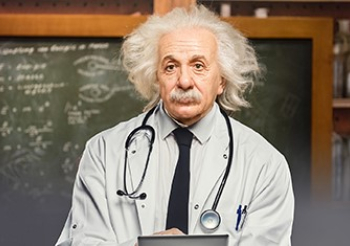
Radiation Transfer and Explosive Thermonuclear Burning in Supernovae
June 17 – 28, 2018
The workshop is dedicated to detailed modeling of supernovae, focused on radiation transfer and explosive thermonuclear burning. In this workshop we propose to bring together theoretical researchers from the different groups working on these problems to create dialogue and establish a better framework for comparing different approximations. We plan to achieve this by discussing acceptable benchmark problems and standards for exchange of calculations results, as well as sharing new advancements in physical understanding, data bases and algorithms.
Boaz Katz, Weizmann Institute of Science
Doron Kushnir, Weizmann Institute of Science
Stephane Blondin,LAM
Markus Kromer, Heidelberg university
Frank Timmes, Arizona State University
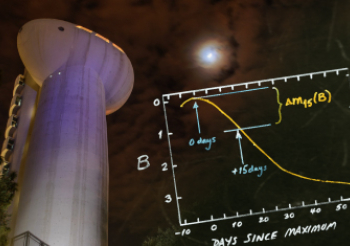
Correlations, Fluctuations and anomalous transport in systems far from equilibrium
December 31, 2017 – January 12, 2018
While considerable progress in the understanding the statistical and dynamical properties of systems far from thermal equilibrium has been made during the last few decades, a general
framework for the characterization of such systems is still lacking. The workshop is aimed at bringing together leading researchers, young scientists and PhD students active in the broad field of nonequilibrium statistical physics fostering open discussions and exploring new directions of research in this rapidly evolving field. Topics that will be covered in the workshop include the emergence of long-range correlations in driven systems; large deviations; anomalous transport whereby transport coefficients (such as heat conductivity) become divergent with the system's size in momentum conserving systems; rare events and extreme value statistics; the emergence of macroscopic structures in self-propelled systems: and related topics.
This is the 7th workshop organized under the auspices of the recently established Schwartz-Reisman Institute for Theoretical Physics (SRitp) at the Weizmann Institute. The SRitp supports small extended workshops focused on timely topics in theoretical physics. The main goal of the workshop program is to encourage international scientific collaboration on topics in the frontier of physics, with an emphasis on promoting scientists at early stages of their careers.
-
Yariv Kafri, Technion
-
Satya Majumdar, Universite Paris Sud
-
David Mukamel , Weizmann institute of Science
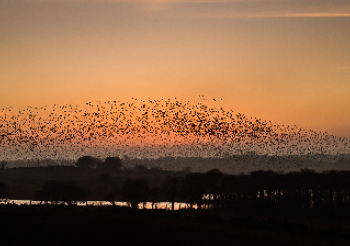
BSM in direct, indirect and tabletop experiments
November 5 – 16, 2017
In this workshop we attempt to expand our searches and deepen our understanding of dark matter particles as well as other light force mediators. We plan to do so both theoretically and via experimental effort. Direct dark matter searches are expected to progress with the expected results from the upcoming XENON1T, LZ and super CDMS experiments and the future Darwin experiment. Further insight is to be achieved at the precision frontier of atomic physics. Special focus will be given to non-traditional experimental approaches and techniques.
- Ranny Budnik, Weizmann Institute of Science
- Claudia Frugiuele, Weizmann Institute of Science
- Elina Fuchs, Weizmann institute of Science
- Yonit Hochberg, Cornell/Hebrew University
- Gilad Perez, Weizmann Institute of Science
- Roee Ozeri, Weizmann Institute of Science
- Tome Volansky, Tel Aviv University
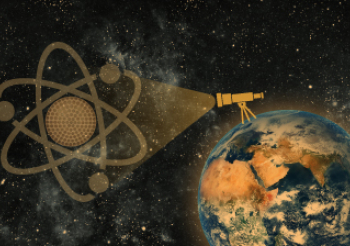
Hammers & Nails - Machine Learning & HEP
July 19 – 28, 2017
The purpose of this workshop is to bring together particle physicists and machine learning researchers to discuss the unique challenges posed by high-energy physics data analysis problems. While some of these problems are simply waiting to be matched with well-established techniques (the pairing of hammers and nails), many require or inspire the development of novel methods.
Topics include:
Generative models, high-dimensional density estimation, and likelihood-free inference
Sublinear-time pattern recognition and online learning
Domain adaptation and systematic uncertainty
Anomaly detection
Optimal experiment design and black box optimization
And new ideas we don’t yet know we need!
We plan an informal atmosphere, with typically 2-3 open-ended lectures each day turning into free discussion, and plenty of time for both independent work and collaboration.
Participation is by invitation only.
We offer travel support; for organizational purposes, it is crucial that you provide us with the Visiting Scientist and reimbursement details that can be found in the "forms" page on this website, and in the email that you should have received from our admin. Please do not hesitate to contact us for questions.
- Eilam Gross, Weizmann Institute of Science
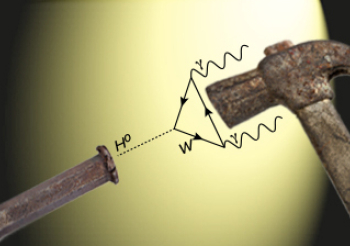
POST-STRINGS WORKSHOP 2017
July 2 – 11, 2017
The workshop is planned for a few dozen people and it will focus on specific topics. The workshop topics will be topics of particular interest and immediacy to the community in 2017, which are also of interest to the members of the WIS group. Currently the planned topics include exact results in quantum field theories, the AdS/CFT correspondence between gauge theories and gravitational theories, and the relation between black holes and quantum chaos. The detailed set of topics, and of participants, will be decided at the beginning of 2017. In any case, we plan to focus on no more than 2-‐3 (interrelated) topics.
- Ofer Aharony, Weizmann Institute of Science
- Micha Berkooz, Weizmann Institute of Science
- Zohar Komargodski, Weizmann Institute of Science
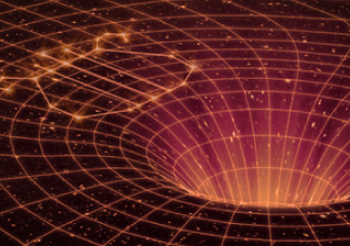
HIGH ENERGY NEUTRINO AND COSMIC-RAY ASTROPHYSICS: THE WAY FORWARD
January 2 – 15, 2017
The field of high energy cosmic-ray, gamma-ray and neutrino astrophysics has seen major experimental developments over the past decade. These include IceCube’s detection of extra-terrestrial high energy neutrinos, new measurements of ultra-high energy as well as lower energy cosmic-rays, and new space and ground based high-energy gamma-ray measurements. Furthermore, a wide array of large neutrino, cosmic-ray, and gamma-ray experiments are under construction and/or planning. In light of these developments, a discussion of the theoretical open questions, that are most important to address, and of the directions of the experimental efforts, that will be most efficient in addressing these questions, is highly timely. The goal of the workshop is to contribute to focusing the theoretical and experimental efforts.
- Kfir Blum, Weizmann Institute of Science
- Ran Budnik, Weizmann Institute of Science
- Albrecht Karle, University of Wisconsin–Madison
- Yosef Nir, Weizmann Institute of Science
- Eli Waxman, Weizmann Institute of Science
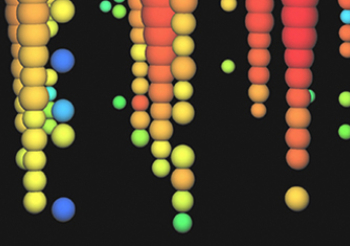
Strongly correlated matter: present and future
December 11 – 22, 2016
The workshop will bring together young group leaders in theoretical and experimental quantum condensed matter physics to discuss new ideas and emerging directions in the field.
Erez Berg, Weizmann Institute of Science
Yuval Oreg, Weizmann Institute of Science
Ady Stern, Weizmann Institute of Science
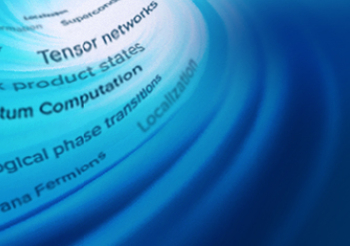
Cosmological probes of fundamental physics
May 29 – June 10, 2016
The purpose of the workshop is to bring together particle physicists, cosmologists, and astrophysicists, to discuss observational progress and new theoretical ideas aimed to utilize cosmological and astrophysical data as a probe for physics beyond the Standard Model.
Dr. Kfir Blum, Weizmann Institute of Science
Dr. Raphael Flauger, Texas University
Aielet Efrati, Weizmann Institute of Science



